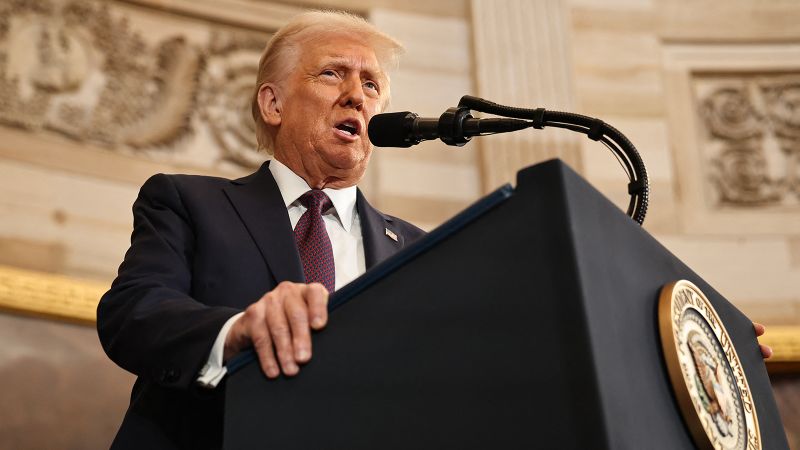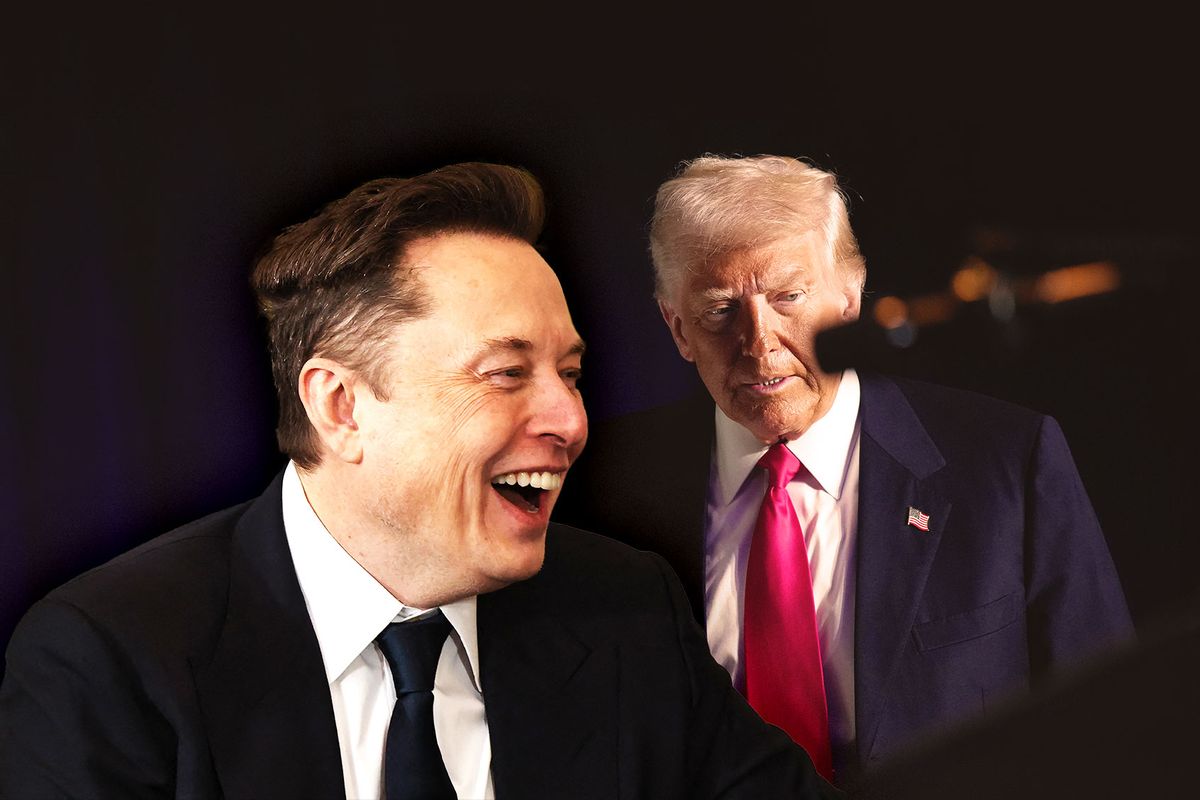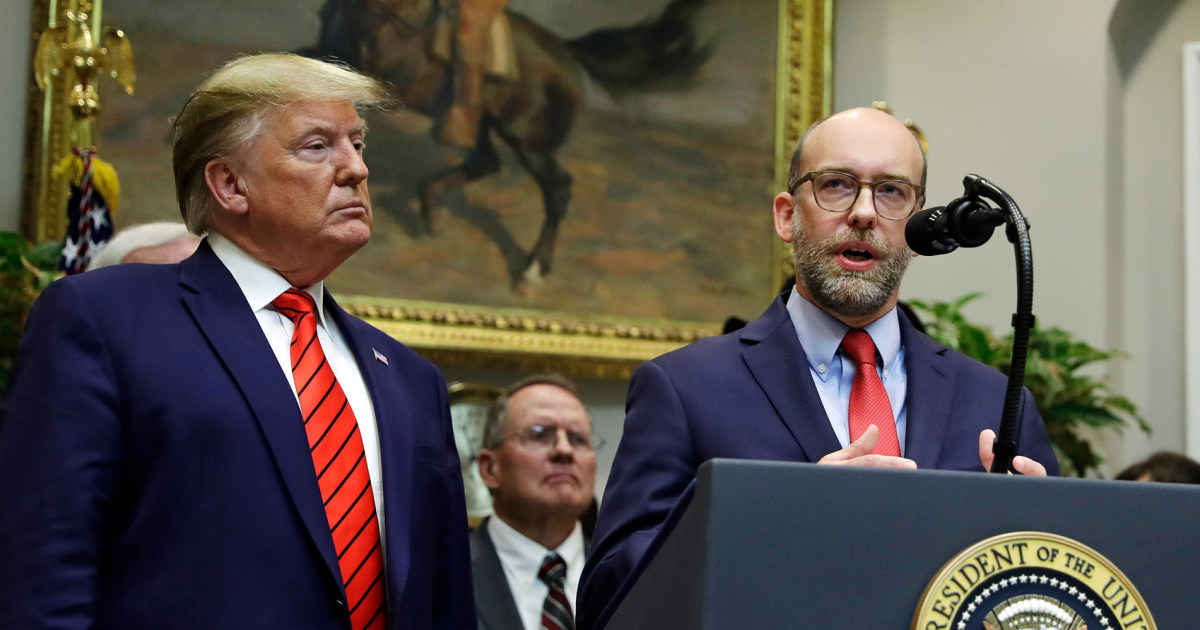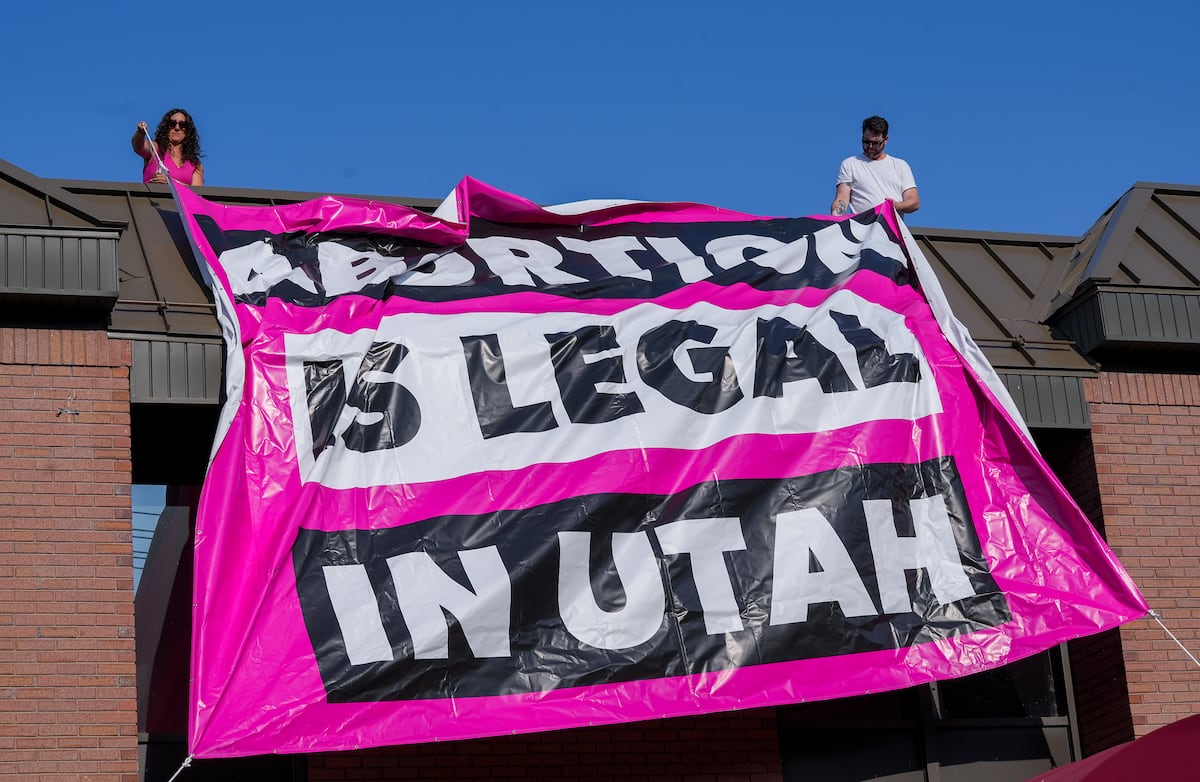Democrats spent Wednesday night into Thursday morning holding the Senate floor, giving speech after speech to oppose Russell Vought, President Donald Trump’s nominee to run the Office of Management and Budget. Even before being confirmed, Vought’s fingerprints could be seen in the slate of orders the Trump administration has handed down to transform the federal government into a system ruled by executive fiat. As dizzying as the last few weeks have been, things stand poised to accelerate now that Vought is firmly in place at the White House.
Vought has engineered an all-out assault on the federal workforce, one underpinned by a radical constitutional vision that has gone from the conservative fringes to the heart of the MAGA reclamation. Under the “unitary executive” theory driving the onslaught, the president holds unchecked authority within the executive branch, power that lies outside any constraints from Congress or the courts. Put into practice, this vision leaves no recourse when a president acts with absolute impunity, no matter how many laws he breaks in the process.
Vought’s vision leaves no recourse when a president acts with absolute impunity, no matter how many laws he breaks in the process.
Some of the changes currently underway involve toppling long-standing norms at a pace unlike anything seen in the first Trump administration. Subtle tweaks to the federal hiring system have allowed billionaire Elon Musk to install allies at various government agencies, where they are demanding high-level access to sensitive systems. Acting officials have fired prosecutors and officials at the Justice Department who worked on cases involving Trump. Thousands of federal civil service staffers face threats of layoffs, leaving their roles open to be replaced with MAGA loyalists.
But other administration actions go further, carried out despite laws that would prevent them — or, more accurately in some cases, in spite of those laws. For example, the president has de facto shut down the U.S. Agency for International Development, ordering its workers on paid leave and for the first time placing the independent agency under the authority of the State Department. He’s likewise fired over a dozen inspectors general without notifying Congress first and moved to hobble other independent agencies like the National Labor Relations Board and the Equal Employment Opportunity Commission, removing Democratic members regardless of protections against being ousted without cause.
In many of these examples, Trump is ignoring the long history of Congress setting the shape and scope of the executive departments and courts. Congress, for example, authorized USAID and never gave the president authority to abolish it. But Trump’s allies have claimed that he’s simply acting under Article II’s “vesting clause,” which declares that “executive Power shall be vested in a President of the United States of America.” From that point, they would argue, every facet of the executive branch is necessarily an extension of that power, and the president must accordingly have complete control over all aspects of it.
More troubling is Vought’s view that the president has the right to actively ignore laws if they theoretically encroach on his authority. In a 2022 essay, Vought wrote that “the Right needs to throw off the precedents and legal paradigms that have wrongly developed over the last two hundred years” that he claims have resulted in the White House yielding in the “titanic struggle between the branches horizontally and between the states and the federal government vertically.” He likewise lamented in a talk in 2023 that when he was OMB director in Trump’s first term, “the lawyers come in and say it’s not legal, you can’t do that, that would overturn this precedent, there’s a state law against that.” In grounding many of Trump’s executive actions not in specific statutes but Trump’s Article II authority, the administration is asserting that the president is using powers that extend beyond any conceivable oversight.
It’s notable that the version of this theory that first arose during the Reagan administration doesn’t necessarily call for an expansion of executive authority, though we have seen plenty of that over the last three decades. The framing adopted by Supreme Court Justice Samuel Alito and other conservative legal voices makes the case for rethinking who controls that power. For example, Vought and his allies argue against the Justice Department’s prosecutions being firewalled from presidential influence. They aren’t calling for a broader range of prosecutorial powers, but that the existing powers be entirely subject to the president’s whims.
There’s some constitutional merit to the idea that the separation of powers means each branch must have shields against usurping too many of the others’ prerogatives. But the sort of counterbalancing that James Madison thought would be necessary, where “ambition must be made to counteract ambition,” requires equally muscular pushback from the legislature and judiciary. Instead, we are in a world where party loyalty has Republicans in the House and Senate ready to hand over the keys to government without a fight. Even when confronted with the likely illegality of an order to freeze all congressionally appropriated funds, their response has been shrugs in public and concerned whispers in private.
The unitary executive that Vought craves would be an absolute inversion of the founders’ views of the federal system
The courts might be slightly less sclerotic in resisting Trump’s takeover — emphasis on “might.” Chief Justice John Roberts has been an advocate for a reading of the separation-of-powers doctrine that cleanly silos the three branches into singular spheres of influence. But in Trump’s last term, the court seemed unwilling to co-sign his authoritarian and expansive view of executive power. As such, even considering the criminal immunity ruling in Trump v. United States, there is no guarantee that this ultraconservative Supreme Court would easily find Vought’s theories convincing.
But there are signs that Vought and his allies are hoping their barrage of actions is enough to overwhelm the courts, allowing at least some to slide under the radar. There’s also evidence that the administration is actively ignoring court orders or lying about its intentions. A spending freeze is still reportedly ongoing in some corners of the government even after multiple court orders to allow the funds to resume flowing. On Thursday, The New York Times reported on emails showing the Treasury Department lied about Musk’s cronies gaining access to payment systems in a bid to turn off payments to USAID.
The unitary executive that Vought craves would be an absolute inversion of the founders’ views of the federal system. Rather than upholding laws passed by Congress, and enforcing the court’s decisions, the goal is a system without checks that would allow for a balance between co-equal branches. In effect, Vought hopes to steamroll the legislature and judiciary into mere extensions of the president’s will as the sole protector, enforcer and interpreter of the Constitution.














